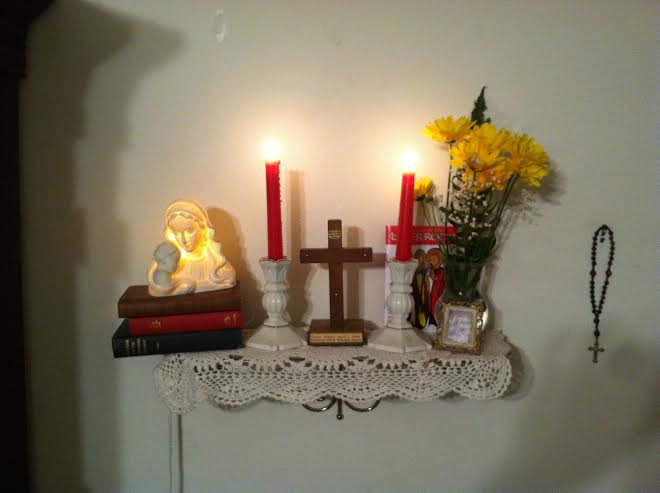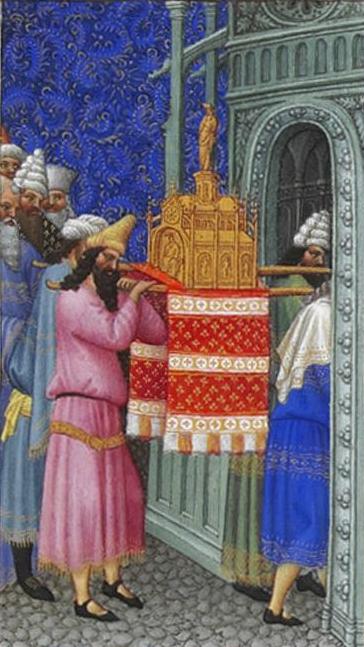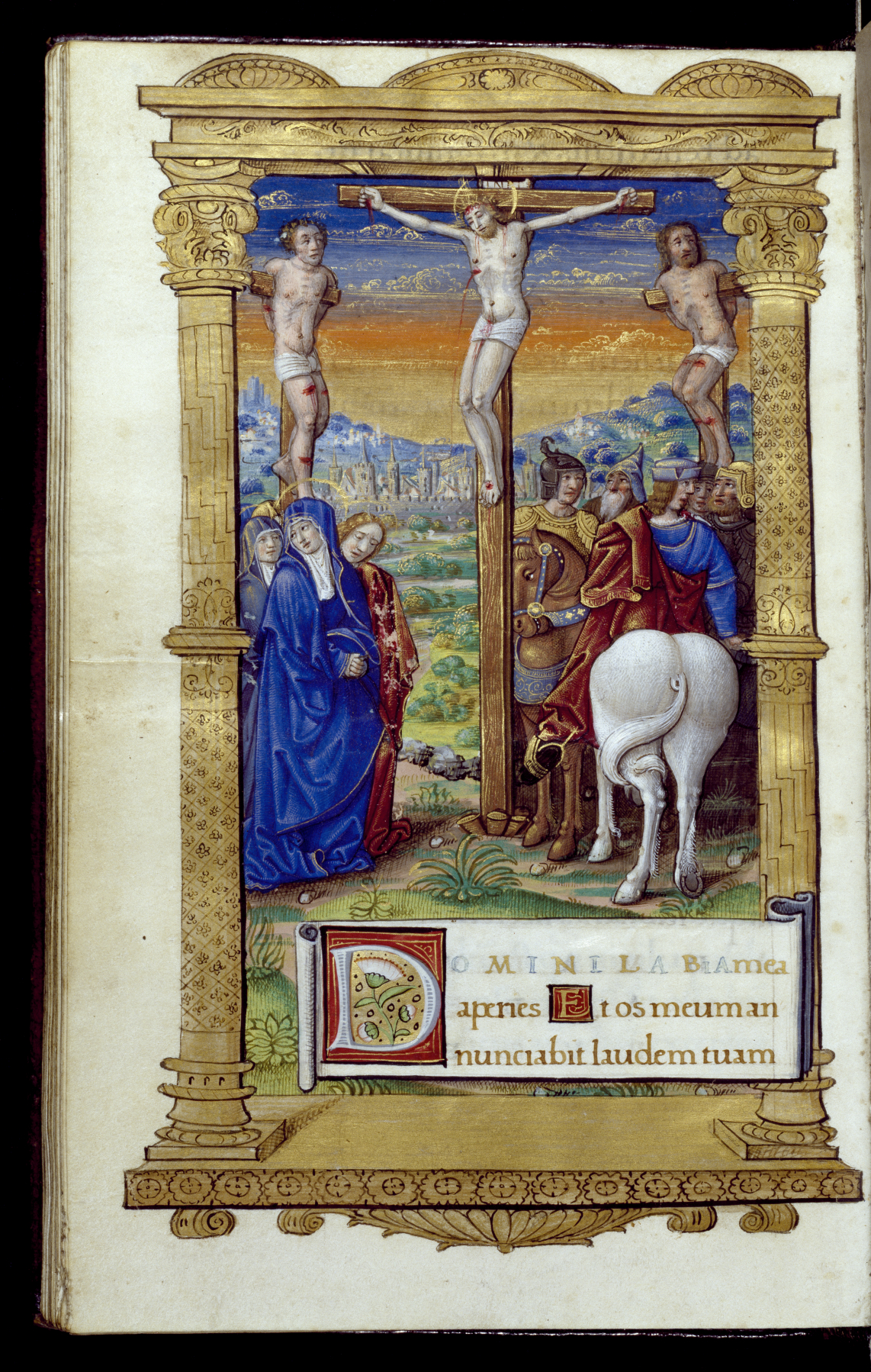|
Invitatory
The invitatory (Latin: invitatorium; also invitatory psalm) is the psalm used to start certain daily prayer offices in Catholic and Anglican traditions. Most often it is Psalm 94(95), also known as the Venite.Numbered 94 in the Greek Septuagint, 95 in the Hebrew Masoretic text: see Psalms > Numbering. The term derives from Medieval Latin ''invītātōrium'', derived from ''invītāre'', "to invite." Catholic The invitatory is used to start Nocturns in the Liturgy of the Hours, the Catholic Church's Divine Office. It is usually Psalm 94(95), which begins ''Venite exsultemus'' in Latin. After the reform of the Liturgy of the Hours following the Second Vatican Council, the Invitatory is said either before the Office of Readings or Lauds, whichever is said first in a liturgical day. In place of Psalm 94(95), Psalm 99(100), Psalm 66(67), or Psalm 23(24) may be used as circumstances may suggest. Verse 17 of Psalm 50(51) ''Domine, labia mea aperies'' is often used as the invitat ... [...More Info...] [...Related Items...] OR: [Wikipedia] [Google] [Baidu] |
Liturgy Of The Hours
The Liturgy of the Hours (Latin: ''Liturgia Horarum'') or Divine Office (Latin: ''Officium Divinum'') or ''Opus Dei'' ("Work of God") are a set of Catholic prayers comprising the canonical hours, often also referred to as the breviary, of the Latin Church. The Liturgy of the Hours forms the official set of prayers "marking the hours of each day and sanctifying the day with prayer." The term "Liturgy of the Hours" has been retroactively applied to the practices of saying the canonical hours in both the Christian East and West–particularly within the Latin liturgical rites–prior to the Second Vatican Council, and is the official term for the canonical hours promulgated for usage by the Latin Church in 1971. Before 1971, the official form for the Latin Church was the ''Breviarium Romanum'', first published in 1568 with major editions through 1962. The Liturgy of the Hours, like many other forms of the canonical hours, consists primarily of psalms supplemented by hymns, re ... [...More Info...] [...Related Items...] OR: [Wikipedia] [Google] [Baidu] |
Anglican Prayer Beads
Anglican prayer beads, also known as the Anglican rosary or Anglican chaplet, are a loop of strung Christian prayer beads used chiefly by Anglicans in the Anglican Communion, as well as by communicants in the Anglican Continuum. This Anglican devotion has spread to other Christian denominations, including Methodists and the Reformed. Beads Anglican prayer bead sets consist of thirty-three beads divided into groups. There are four groups consisting of seven beads with additional separate and larger beads separating the groups. The number thirty-three signifies the number of years that Jesus Christ lived on the Earth, while the number seven signifies wholeness or completion in the faith, the days of creation, and the seasons of the Church year. Groupings The groupings are called "weeks". The beads between are usually larger than the "weeks" beads and are called "cruciform" beads. When the loop of beads is opened into a circular shape, these particular beads form the points of a c ... [...More Info...] [...Related Items...] OR: [Wikipedia] [Google] [Baidu] |
Office Of Readings
Matins (also Mattins) is a canonical hour in Christian liturgy, originally sung during the darkness of early morning. The earliest use of the term was in reference to the canonical hour, also called the vigil, which was originally celebrated by monks from about two hours after midnight to, at latest, the dawn, the time for the canonical hour of lauds (a practice still followed in certain orders). It was divided into two or (on Sundays) three nocturns. Outside of monasteries, it was generally recited at other times of the day, often in conjunction with lauds. In the Byzantine Rite these vigils correspond to the aggregate comprising the midnight office, orthros, and the first hour. Lutherans preserve recognizably traditional matins distinct from morning prayer, but "matins" is sometimes used in other Protestant denominations to describe any morning service. In the Anglican daily office, the hour of matins (also spelled mattins) is a simplification of matins and lauds from the U ... [...More Info...] [...Related Items...] OR: [Wikipedia] [Google] [Baidu] |
Psalm 100
Psalm 100 is the 100th psalm in the Book of Psalms in the Hebrew Bible. In English, it is translated as "Make a joyful noise unto the Lord, all ye lands" in the King James Version (KJV), and as "O be joyful in the Lord, all ye lands" in the Book of Common Prayer (BCP). Its Hebrew name is he, lit=Mizmor l'Todah, text=מִזְמוֹר לְתוֹדָה, label=none and it is subtitled a "Psalm of gratitude confession". In the slightly different numbering system in the Greek Septuagint version of the Bible, and in the Latin Vulgate, this psalm is Psalm 99. In the Vulgate, it begins Jubilate Deo (alternatively: "Iubilate Domino"), or Jubilate, which also became the title of the BCP version. People who have translated the psalm range from Martin Luther to Catherine Parr, and translations have ranged from Parr's elaborate English that doubled many words, through metrical hymn forms, to attempts to render the meaning of the Hebrew as idiomatically as possible in a modern language (of the ... [...More Info...] [...Related Items...] OR: [Wikipedia] [Google] [Baidu] |
Phos Hilaron
''Phos Hilaron'' ( grc-x-koine, , translit=''Fόs Ilarόn'') is an ancient Christian hymn originally written in Koine Greek. Often referred to in the Western Church by its Latin title ''Lumen Hilare'', it has been translated into English as ''O Gladsome Light''. It is the earliest known Christian hymn recorded outside of the Bible that is still in use today. The hymn is part of vespers in the Byzantine Rite and the Roman catholic church, and also included in some Anglican and Lutheran liturgies. Origins The hymn was first recorded by an unknown author in the ''Apostolic Constitutions'', which was written in the late 3rd or early 4th century. It is found in a collection of songs to be sung in the morning, in the evening, before meals, and at candle lighting. ''Phos Hilaron'' is to be sung at the lighting of lamps in the evening and so is sometimes known as the “Lamp-lighting Hymn”. Despite some of the words to the other three songs being from Scripture or in one case dated to ... [...More Info...] [...Related Items...] OR: [Wikipedia] [Google] [Baidu] |
Antiphon
An antiphon (Greek ἀντίφωνον, ἀντί "opposite" and φωνή "voice") is a short chant in Christian ritual, sung as a refrain. The texts of antiphons are the Psalms. Their form was favored by St Ambrose and they feature prominently in Ambrosian chant, but they are used widely in Gregorian chant as well. They may be used during Mass, for the Introit, the Offertory or the Communion. They may also be used in the Liturgy of the Hours, typically for Lauds or Vespers. They should not be confused with Marian antiphons or processional antiphons. When a chant consists of alternating verses (usually sung by a cantor) and responds (usually sung by the congregation), a refrain is needed. The looser term antiphony is generally used for any call and response style of singing, such as the kirtan or the sea shanty and other work songs, and songs and worship in African and African-American culture. Antiphonal music is that performed by two choirs in interaction, often singing ... [...More Info...] [...Related Items...] OR: [Wikipedia] [Google] [Baidu] |
Psalm 51
Psalm 51, one of the penitential psalms, is the 51st psalm of the Book of Psalms, beginning in English in the King James Version: "Have mercy upon me, O God". In the slightly different numbering system used in the Greek Septuagint and Latin Vulgate translations of the Bible, this psalm is Psalm 50. In Latin, it is known as Miserere, ( grc, ἐλέησόν με ὁ θεός, eléēsón me ho theós) in grc, Ἥ Ἐλεήμων, Hḗ Eleḗmōn), especially in musical settings. The introduction in the text says that it was composed by David as a confession to God after he sinned with Bathsheba. The psalm forms a regular part of Jewish, Catholic, Eastern Orthodox and Protestant liturgies. Background and themes Psalm 51 is based on the incident recorded in 2 Samuel, chapters 11–12. David's confession is regarded as a model for repentance in both Judaism and Christianity. The Midrash Tehillim states that one who acknowledges that he has sinned and is fearful and prays to ... [...More Info...] [...Related Items...] OR: [Wikipedia] [Google] [Baidu] |
Psalm 24
Psalm 24 is the 24th psalm of the Book of Psalms, beginning in English in the King James Version: "The earth is the 's, and the fulness thereof". In the slightly different numbering system used in the Greek Septuagint version of the Bible and the Latin Vulgate, this psalm is Psalm 23. In Latin, it is known as "Domini est terra et plenitudo eius orbis terrarum". The psalm is marked as a Psalm of David. The psalm is a regular part of Jewish, Catholic, Lutheran, Anglican and Nonconformist Protestant liturgies. It has often been set to music, notably by Heinrich Schütz and Lili Boulanger. The section "Lift up your heads, O ye gates" has been associated with Advent, and paraphrased in hymns. The same dialogue, requesting the gates to open for the King of Glory, have also been associated with the feast of the Ascension, therefore Handel set it in Part II of his ''Messiah'' in the scene " Ascension", and Christoph Bernhard Verspoell wrote a related hymn, "", in 1810. Background Da ... [...More Info...] [...Related Items...] OR: [Wikipedia] [Google] [Baidu] |
Psalm 67
Psalm 67 is the 67th psalm of the Book of Psalms, beginning in English in the King James Version: "God be merciful unto us, and bless us; and cause his face to shine upon us". In Latin, it is known as "Deus misereatur". In the slightly different numbering system of the Greek Septuagint The Greek Old Testament, or Septuagint (, ; from the la, septuaginta, lit=seventy; often abbreviated ''70''; in Roman numerals, LXX), is the earliest extant Greek translation of books from the Hebrew Bible. It includes several books beyond th ... version of the Bible, and in the Latin Vulgate, this psalm is Psalm 66. Its theme is a prayer for God's mercy, blessing and light. The psalm forms a regular part of Jewish history, Jewish, Catholic Church, Catholic, Lutheranism, Lutheran, Anglicanism, Anglican and other Protestant liturgies. It has been paraphrased in hymns and #Musical settings, set to music. Biblical commentator Cyril Rodd divides it into three sections: two "broadly parallel" sec ... [...More Info...] [...Related Items...] OR: [Wikipedia] [Google] [Baidu] |
Lauds
Lauds is a canonical hour of the Divine office. In the Roman Rite Liturgy of the Hours it is one of the major hours, usually held after Matins, in the early morning hours. Name The name is derived from the three last psalms of the psalter (148, 149, 150), the Laudate psalms, which in former versions of the Lauds of the Roman Rite occurred every day, and in all of which the word ''laudate'' is repeated frequently. At first, the word ''Lauds'' designated only the end, that is to say, these three psalms. Little by little the ''Lauds'' was applied to the whole office. History Lauds, or the Morning Office or Office of Aurora, is one of the most ancient Offices and can be traced back to Apostolic times. The earliest evidence of Lauds appears in the second and third centuries in the Canons of Hippolytus and in writings by St. Cyprian, and the Apostolic Fathers. Descriptions during the fourth and fifth centuries appear in writings by John Cassian, St. Melania the Younger, St. Hilary ... [...More Info...] [...Related Items...] OR: [Wikipedia] [Google] [Baidu] |







